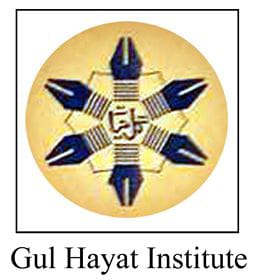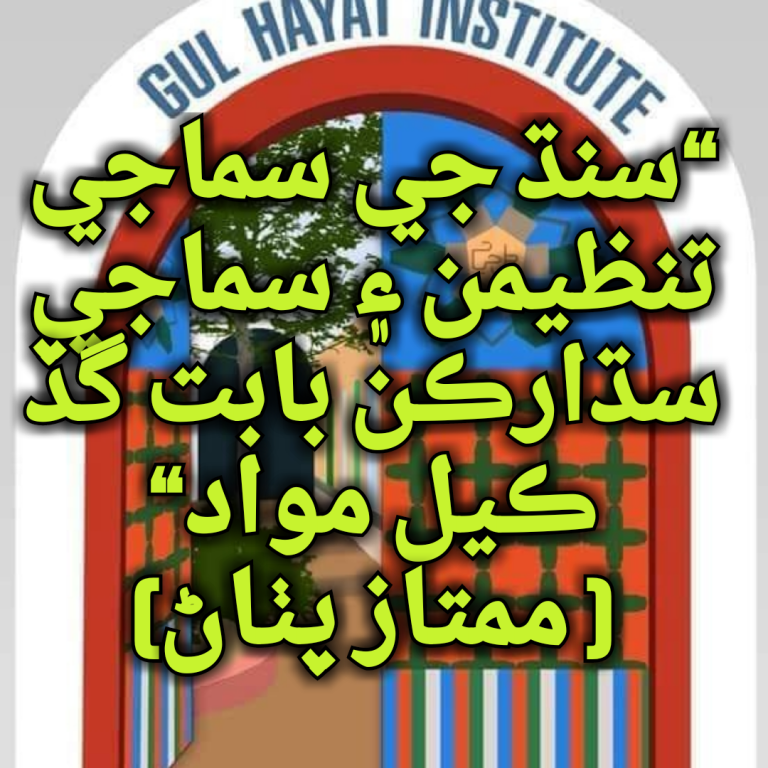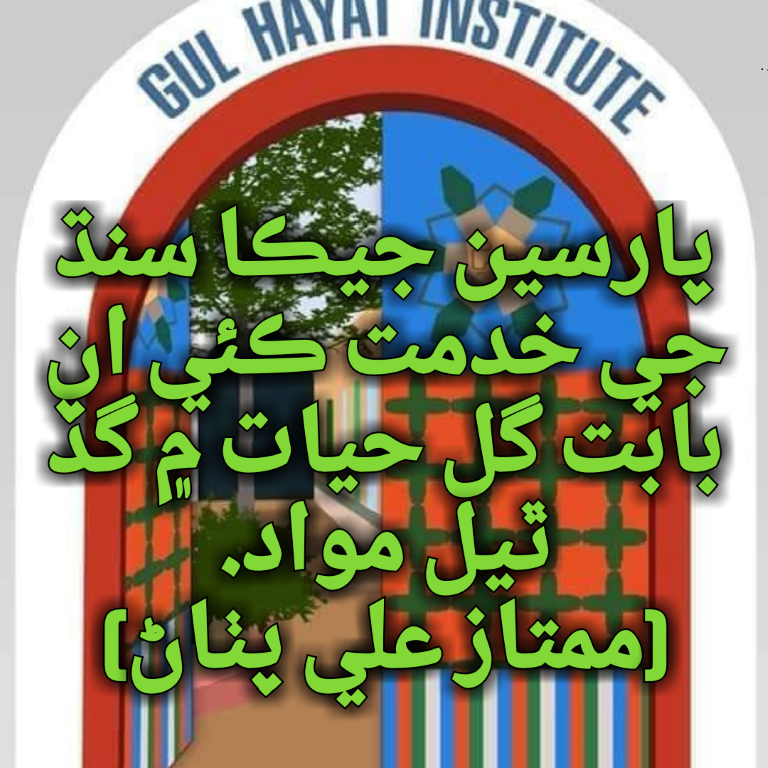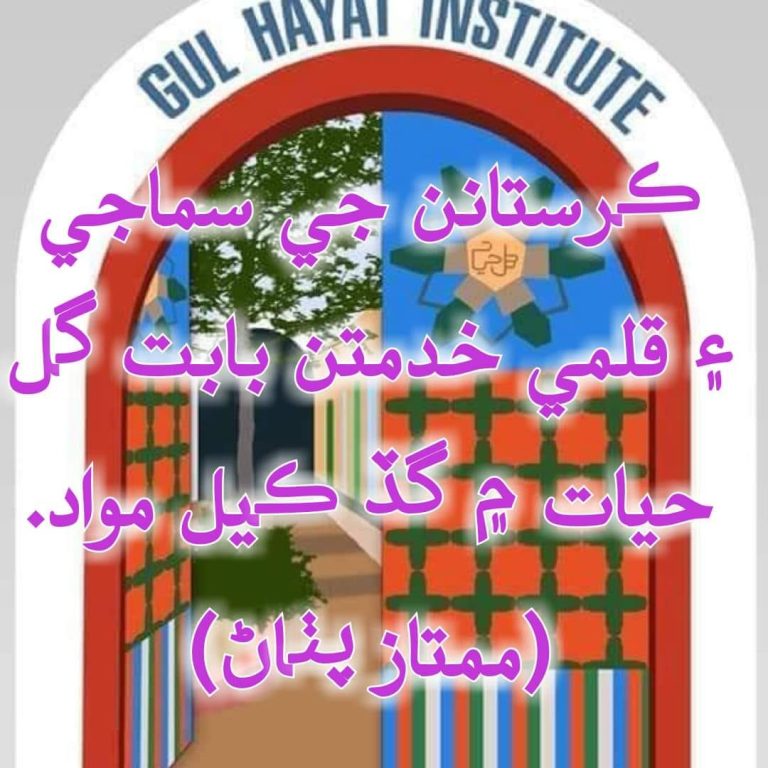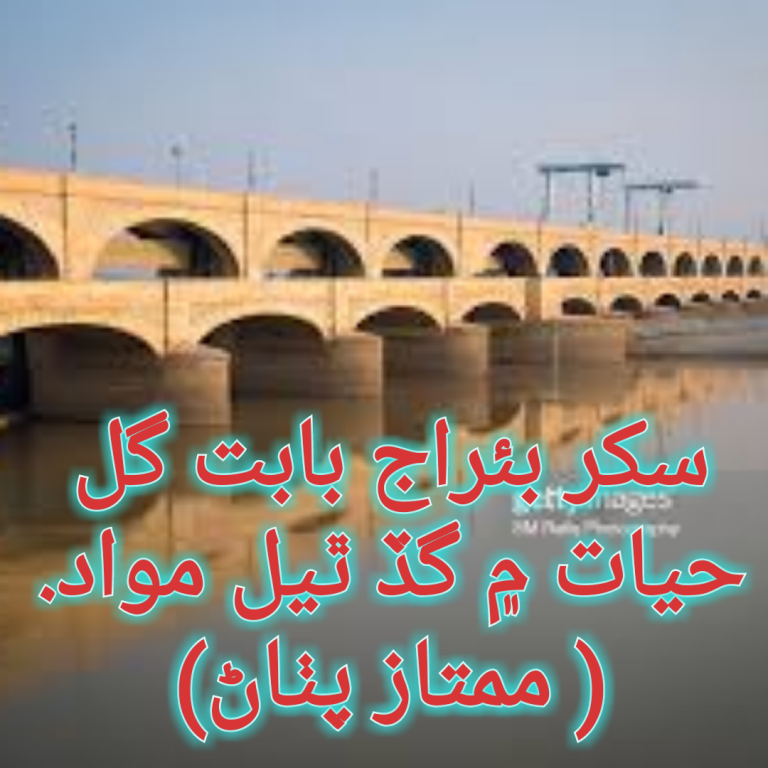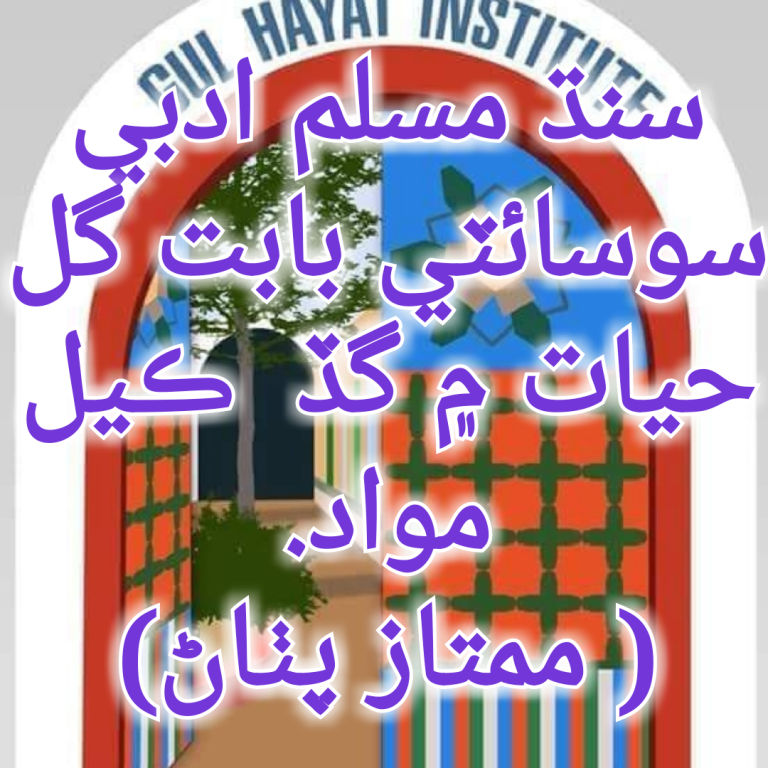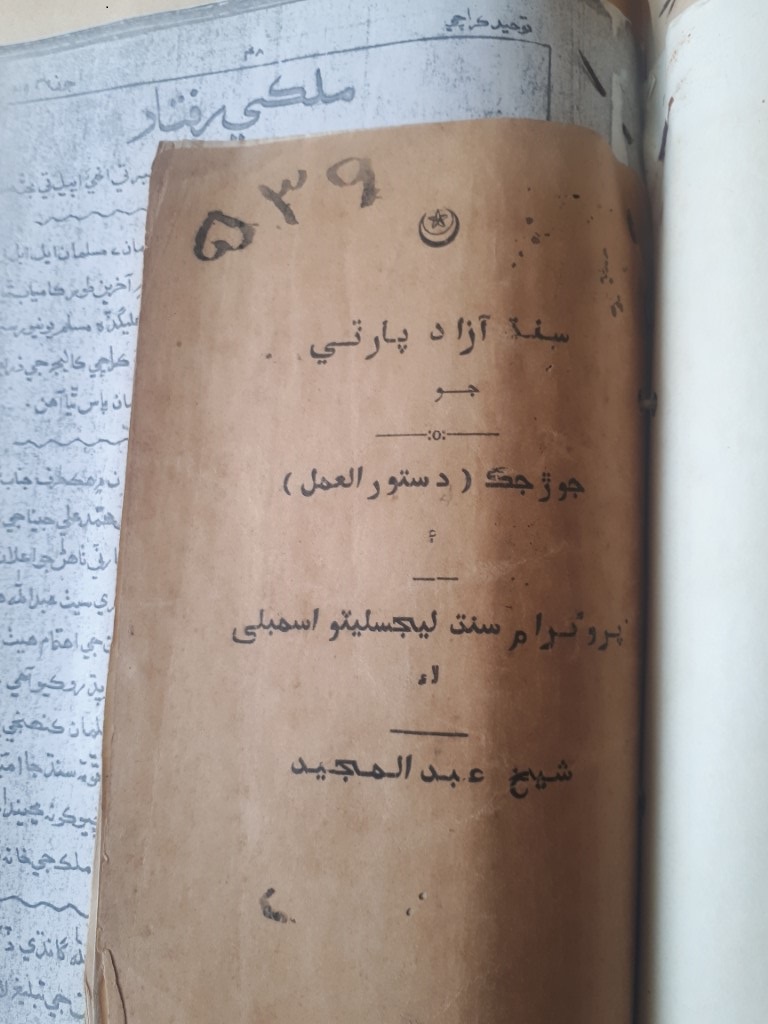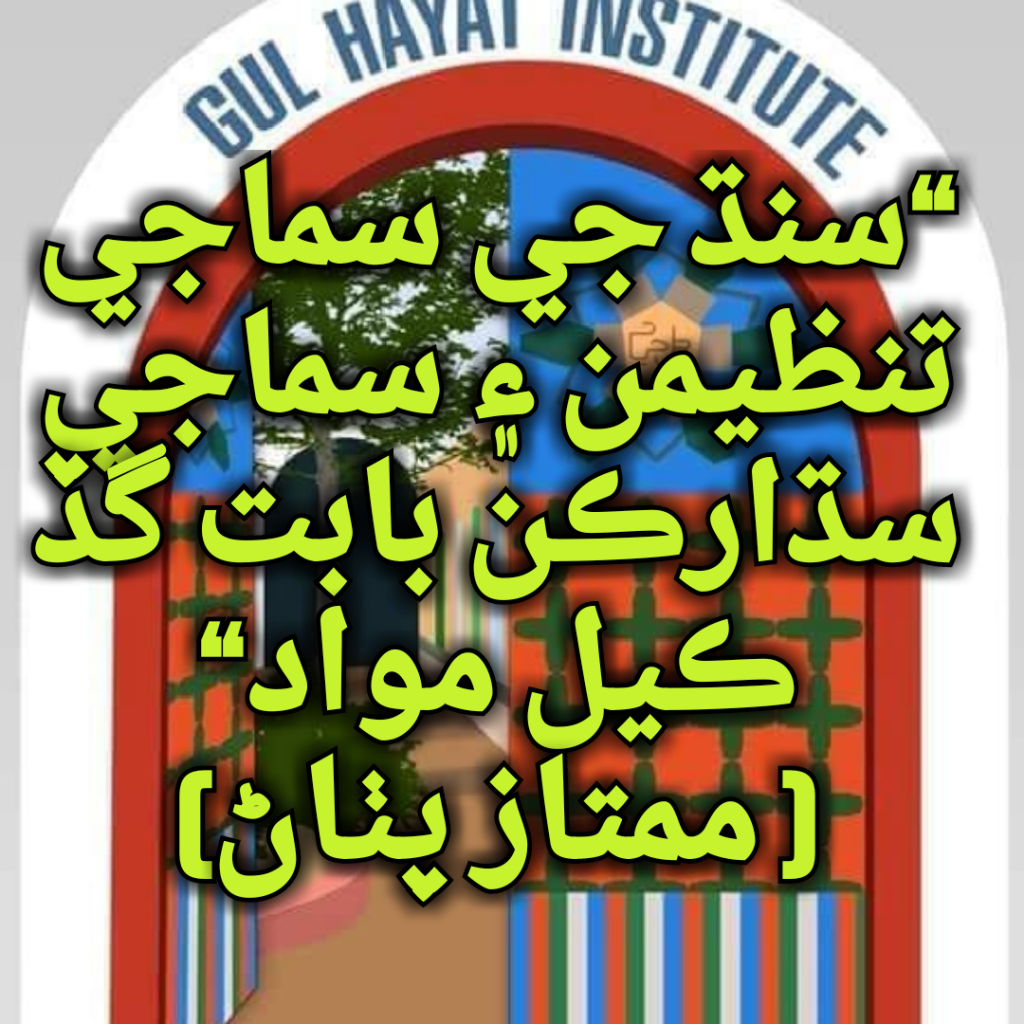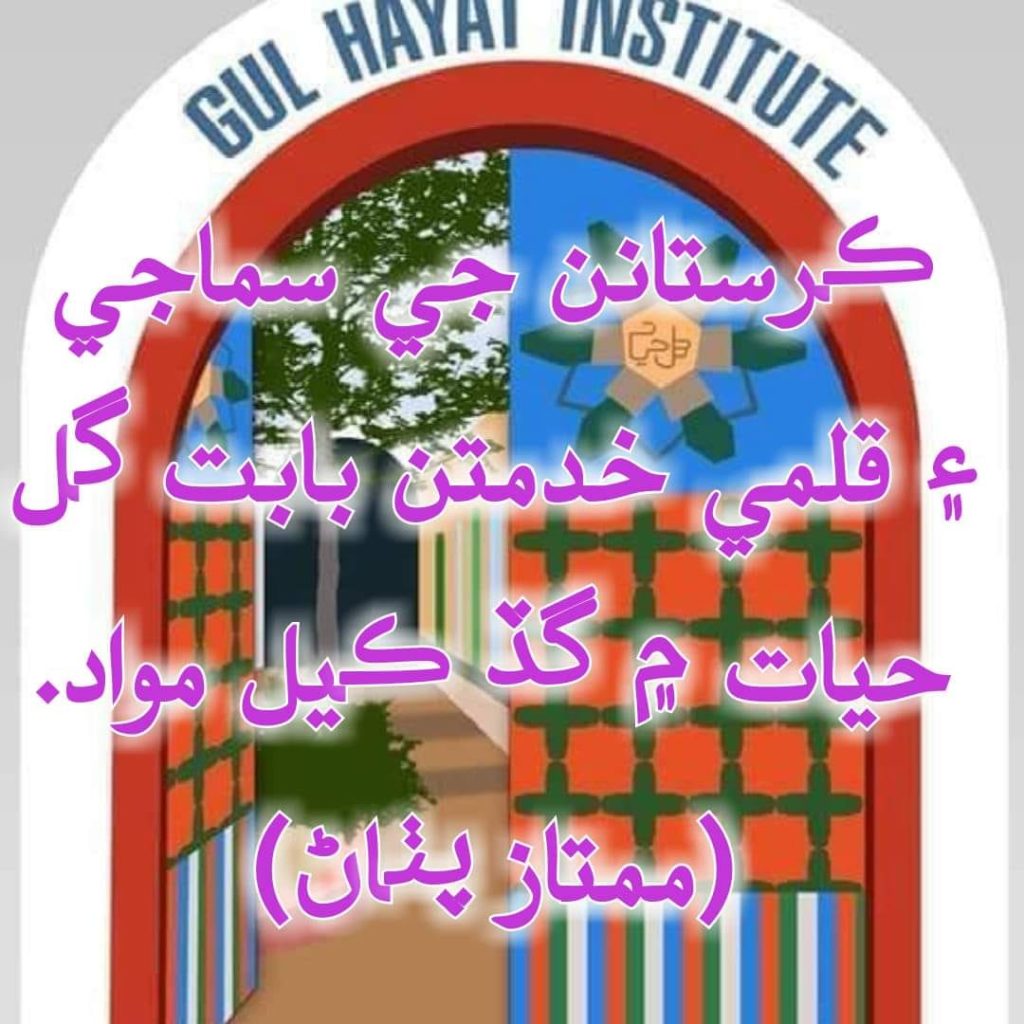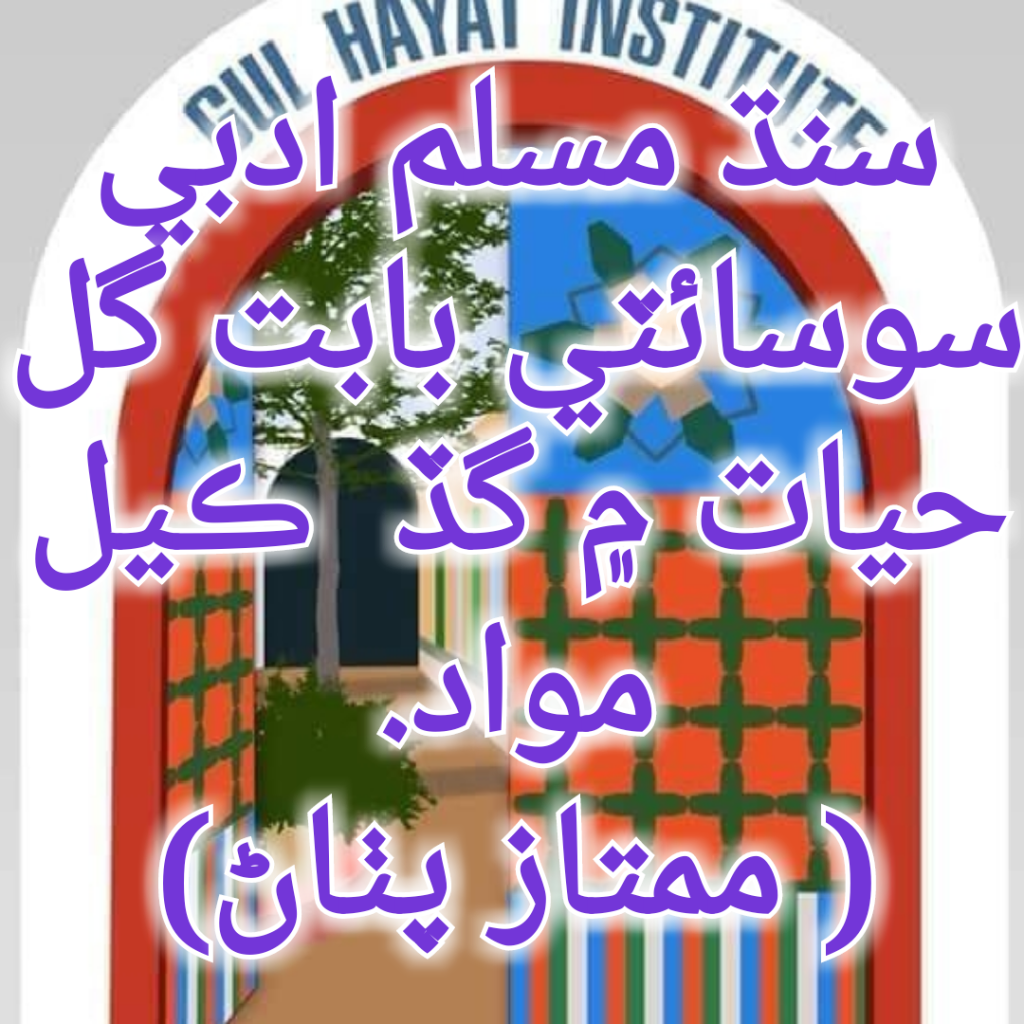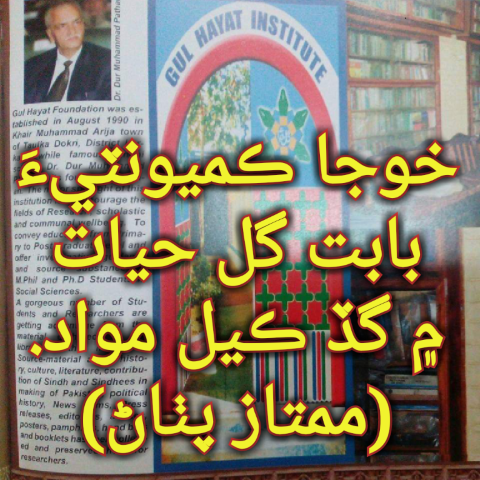JANUARY BIRTH DATE
1st January
ABDUL HALIM SOOMRO ( /Folk Literature/1951)
ABDUL KARIM “Gadai” (Jacobabad/ Literature/1901)
AKRAM ANSARI(Borri/Literature & Education/1925)
ABDUL REHMAN MANGI ( Nasirabad / Journalism / 1939)
ABID MAGSI ( Sobho Khan / Literature / 1951)
ABID MANGIO ( Sakrand / Literature / 1937)
ABDUL MAJEED “Pyasi” ( Ghari / Poetry/1941)
AIJAZ QURESHI (Arazi / Education & Social work / 1942)
ABDUL HAQUE ALMANI (Literature / 1941)
ARBAB ALI MANGANHAR (Anb Fakir / Literature / 1960)
BAHAR BURIRO (Mirpur Buriro / Folklore Literature/1960
BAGHI GORAR (Valyo Khoso/ Literature /1974)
BAKHAT RAZA ( Dadu / Literature / 1982)
BALRAM DODAI ( Badah / students Politics / 1966)
BHAGWAN TILWANI (Bobià Ajmeer/Literature/1934)
“ DARD” JAWANRI ( Sita Road / Poetry / 1969)
FAIZ PANHWAR ( Misri Chandio / Literature / 1952)
FAKIR MUHAMMAD BHUTTO ( Arzi Bhutto / Folk literature /1942)
GHULAM RASOOL SHAH ( Mirpurkhas / Journalism /1935)
GUL BURIRO (Buriro Village /Poetry /1936)
GHULAM “BETAB” ( /Poetry/ 1937)
GHULAM QADIR “ Attash” (Bero Gadahi / Literature /1924)
GHULAM QADIR “Sadai” (Hamal Mastoi / Poetry /& Religion/1937) GHULAM-U-DDIN “ Moulai” (Sodho Khaskheli /Folk Literature/1951)
GHULAM MUHAMMAD BOZDAR (M.K.Bozdar / Social work /1953)
GHULAM HUSSAIN MANGI (Larkano / Journalisim/1895)
HAFIZ FATEH M.Mahessar ( Mullan Ali / Social Work / 1966)
INAYATULLAH ZANGEJO ( Literature / 1937)
INAYATULLAH BHUTTO (Literature /1942)
JEWARTRAM “Jot” (Ubauro à Ulhansnagar/Poetry/1928)
KHISHANCHAND KHOOBCHANDANI
(Bhirya àAhmedabad/Poetry & Drama/1934)
JANI LUND (Sita Road / Literature / 1974)
JEWATRAM SEETPAL ( Sukkur à Mombay / Poetry & Journalism / 1937)
LAL PUSH ( Larkanao à Mombay / Literature /1935)
MOULA BUX “SAGAR” (Larkano/Poetry/1924)
MUFTI MUHAMMAD SALIH BHUTTO (Agani/Religion/1922)
MOULVI MUHAMMAD QASIM (Garhi Yaseen/ Religion/ 1888)
MUHAMMAD SOOMAR SHAIKH (Badin/Education & Literature/1935)
MUNEER SOLANGI (Pir-jo-Goth/ Poetry/ 1935)
MUHAMMAD QASIM “Ajiz” ( /Poetry / 1936)
MURLIDHAR NANKANI ( Nawabshah à Baroda / Singing /1937)MUHAMMAD SALIH “KHADIM “ MAHAR (Sadiq-ji-Wandh / Poetry)
MOULVI ABDUL HAKIM (Rajanpur/Religion/1901)
“MUJRIM” LAGHARI ( /Poetry/1930)
NARAIN TOLANI (Larkanao à Ahmedabad/Singing/1925)
MUHAMMAD ALI “Muftoon” (Mir Hassan Gadahi / Literature/1929)
MOULA BUX “Mashghool” ( Old Rukun / Literature / 1935)
MUHABAT BALOUCH (Dadu / Literature / 1974)
MUHAMMAD SOOMRO ( Panjodero / Literature / 1974)
MUHAMMAD BUX “Salik Solangi” (Larkano / Poetry /1943)
M.ALIM SHABANAM DONGAR (Gul Dongar / Literature /1926)
M.NAWAZ CHANNO ( Pir Bux Channo / Folklore Literature /1966)
NAZIR HUSSAIN TUNIO ( Phulari / Poetry / 1969)
NABI BUX “NAZ” (Tando Ghulam Ali / Poetry / 1966)
QAMAR NATHANSHAHI ( Mado / Literature /1949)
QADIR SHAIKH (Valid- Dadu / Literature / 1968)
RATAN CHHUGANI (Larkanao Mombay/Singing/1924)
RASOOL BUX SHAIKH (Jacobabad/ Journalism &Politics /1921)
REWANCHAND AJWANI (Hingorja à Mombay /Literature/1925)
SYED SARDAR ALI SHAH “Zakir’( Berri/Journalisim/1928)
SAWAN KUMAR “UDASI” ( Larkano à Ulhasnagar / Poetry & Singing / 1940)
SHOUKAT SHAH “Sikyal” C Pipri /Poetry /1968)
SABIR SAEEDPURI ( Saeedpur / Literature / 1971)
SIRICHAND “Sangdil” (Poetry / 1942)
SYED AHMAD ALI LAKHVI (Lakhi / Poetry / 1900)
SHAMSHER SILRO ( Karachi / Literature / 1981)
SHUBAN “BAKHIT” (Jecobabad/Poetry/1932)
TARANG LALWANI (Literature/1914)
TASEER NATHANSHAHI (Mado / Literature / 1967)
USTAD BHUKHARI (Ghulam Chandio / Education & Poetry/1930)
VISHANDAS BHATIJA (Literature/1914)
2nd January
Hiranand Karamchand Hingorani (Khai Raho/Educationist & Writer/1885), Jan Muhammad Junijo (Dhamraha/Freedom Fighter/1888), Abdul Hussain Shah Musvi (Rohri/Writer/1902), Ram Chandani (Sehwan > Gandhidham/Writer & Actor/1933), Ram Gul Rajmal (Singer/1933), Mohsin Abbasi (Poet/1933), Suroopchand ‘Shad’ (Poet/1937), Asim Nathanshahi (Poet/1937), Ali Gohar Khuhawar (Gaji Khuhawar/Jornalist/1941), Prof. Aijaz Qureshi (Director Benazir Chair, Writer & Social worker/1948), Muhammad Alam Shar ‘Soofi’ (Rasoolpur/Poet/1950), Abdul Sattar Bhatti (Larkano/ Writer & Social worker/1952), Imtiaz ‘Khayam’ (poet/1953), Suresh Rohra (Ulhasnagar/Writer & Actor/1954), Muhammad Soomar Solangi (Folklore Poet/1955), ‘Wafa’ Manzoor Panhwar (Khairpur Nathan Shah/Poet/1956), , Akhtyar Ahmad ‘Gulshan’ Lashari (Phulpota/1962), Abdullah ‘Ajiz’ Bughio (Jhonjhan/Poet/1962), Ashraf Jarwar (Sahib Khan Jarwar/Journalist/1964), Ahmad Ali Jamali (Rajwah/Writer/1970), Bhesham Bhawani (Mithi/Poet/1976), Mor Sindhi (Manjhand/Writer/1980), Hafiz Baghi (Allahdino/Poet/1981), ‘Akash’ Ajiz Lashari (Mir Muhammad Lashari/Jornalist/1982).
3rd January
Naraindas “Qalandri” (Sehwan > Ajmir/Poet/1913), Udharam “Udhas” (Kandyaro > Baroda/Poetry/1914), Arjundas Tulsidas (Rohri > Ajmir/Politician/1915), Kirat Babani (Nawabshah > Mombai/Writer/1922), Naraindas Mirchandani (Rohri > Ajmir/Social Worker/1933), Ghulam Rasool Kalhoro (Jhali Kalhora/Story writer/1941), Chandro Punjabi (Hyderabad > Mombai/Writer/1944), Iqbal Tareen (Student leader & Journalist/1949), Muhammad Qasim Dero (Bora Lakhr/Journalist/1949), Ghulam Shabir Soomro (Folklore Poet/1960)Imtyaz Mughul (Kambar/ Writer/1966), Asghar Burfat (Tahni Sehwan/Journalist/1970), Maqsood Agro (Sultan Agro/Writer/1979), Asif Azad Mirani (Sita Road/Poet/1983).
4th January
Haji Mahmood ‘Khadim’ (Buthi/Poet/1895), Imam Bux Gaho (Politician/1902), Allah Obhayo Memon (Khahi Qasim/Politician/1912), Mir Faiz Muhammad Khan Second (Khairpur/1913), Syed Hidayatullah Shah (Khai/Poet/1914),Naraindas Dhanjani (Bhit > Ajmir/Writer & Freedom Fighter/1918), Begam Zeenat Channa (Shikarpur/ Founder editor ‘Adyoon’/1919), Amir Ali Shah ‘Amir’ (Mirpur Bhutto/Poet/1919), Abdul Qadir Sanjrani (Shahpur Chakar/ Ex – Minister, Govt. of West Pakistan/1926), Shewak Nankani (Nawabshah > Baroda/Singer/1930), Abdul Ghaffar Sabri (Syed Pir Muhammad/Jornalist/1930), Dr. Abdul Qadir Ansari (Hyderabad/ Scholar/1940), Haleemullah Abbasi (Dokri/Folklore Poet/1949), Hafiz Khair Muhammad Cholhyani (Gul Buriro/Jornalist/1953), Sikandar Ali Siddiqui (Shikarpur/Journalist/1954), Muhammad Siddique Mangio (Sakrand/Writer/1956), Aziz Kingrani (Haji Manik/Writer/1958), Qazi Asif (Journalist/1965), Muhammad Ramzan Nohrio (Tando Thorho/Journalist & Political Activist/1970), Danish Jatoi (Bhit Shah/Journalist/1973), Shokat Nonari (Bhirya Road/Poet/1974), Sikayal Malah (Dali Ji Miyani/Poet/1975), ‘Piyasi’ Hameed Gabole (Poet/1996).
5th January
Muhammad Khan ‘Majeedi’ (Poet/1918), Karim Bux ‘Ghayal’ (Naudero/Poet/1919),Abdul Karim Baloch, Maqbool Bhatti (Journalist & Writer/1927), zulfkar Ali Bhutto ( Ex -First civilian Chief Martial law administer, President & Prime Minister/1928),Meval Ahuja (Larkano > Baroda/Writer & Actor/1937), (Karachi/ Artist & writer/1939), Sarang Latifi (Karachi/Poet/1942), Diwan Tilwani (Hyderabad > Ajmir/ Social Worker/1944), Sundar ‘Mujrm’ (Bhirya > Ahmadabad /Poet/1945), Zia _ul_ Haq Mahessar (Rahro/Writer/1947), Khadim Abbasi (Faqir Nanik Yousif/Writer/1949), Mahir –u-Nisa Larik (Bhit Shah/Writer/1950), Abdul Sattar Bhatti (Larkano/ Writer & Social Worker/1952), Hafiz Muhammad Esa Channo (Ibrahim Channo/Writer/1962), Ahmad Solangi (poet/1968), Anwar Ali Dayo (Khairpur/ Social Worker/1971), Roshan Ali Bughio (Mehar/ Writer, social worker & Judge/1974), Manzoor Ujan (Mushtaq Ujan/Poet/1975). Mahboob Janwri (Kandi war/Writer/1974), Sami Paras (Sukkur/Poet/1981), Saba Shah (Poetess/1982).
6th January
Moti Gulrajani (Hyderabad > Mombai/Writer & Actor/1923), Dr. Hamid Ali Khanai (Khan Wahan/Scholar/1934), Hiro Tikamdas Shewkani (Chohar Jamali > Ulhasnagar/Writer/1935), Amir Bux Bhatti (Subhani BHatti/ Journalist/1942), Lal ‘Piyasa’ (Tandoadam > Ghandhidham/Poet/1944), Muneer Ahmad Channo (Dadu/Ex – MPA & Anti – One Unit activist/1947),Rahi Channa (Johi/Poet/1952), Mushtaq Kalwar (Sachidino Kalwar/Writer/1965).
7thJanuary
Jamshed Mehta (Karachi/Freedom Fighter & Mayor of Karachi/1886), Nooral Shah ‘Nooral’ (Mori manger/Poet/1890), Khanchand Daryani (Hyderabad > Mobai / Dramatist/1899), Gokaldas Bhagia(Politician/1907), Ghulam Mustafa Bhurgri (Freedom Fighter/1913), Saadullah ‘Sipahi’ (Nasrpur/Poet/1925), Arjun Hasid (Karachi > Ahmadabad/Poet/1930) Syed Dr. Wadal Shah (Scientist/1939), Muhibullah ‘Tabrez’(Sujawal Tunio/Poet/1940), ‘Miskeen’ Channo (Mado/poet/1949), Ali Raza Laghari Khesanwi (Ghulam Muhammad Laghari/Journalist/1960), Raja B.H.Kalhoro/Khairpur Nathan Shah/Writer/1973), Raza Kalhoro (Sanghar/Poet/1974), Ibrahim Malah (Ghulam Muhammad Malah/Writer/1982), Muhammad Bachal Kalhoro (Paat/Writer/1984), Nasrullah ‘Shad’ Gadani (Gadani Gabol/Poet/1985).
8th January
Mahboob Sarwari (Poet/1934), Muhammad Paryal ‘Bedar’ (Poet/1937), Amir Ali Shah (Matiari/Politician/1940), Sooraj Jasoja (Mombai/Actor/1952), Hussain Bux ‘Manzil’(Poet/1954), Ali Muhammad ‘Arzo’ (Poet/1956), Ibn Mahzoon (Mehar/Writer/1967), Abdul Aziz Bozdar (Ratodero/Journalist/1969), Asad Abbasi (Sukkur/Poet/1972), Waqar Siyal (Jan Muhammad Siyal/Poet/1975).
9th January
Nabi Bux Sarki Lala (Jacobabad/Journalist & Freedom Fighter/1892), 2. Hoondraj Balwani (Larkano – Ahmadabad/Poet, Writer & Actor/1947).
10th January
Mian Ghulam Sarwar Qadri (Larkano/Poer/1886), Khuda Bux ‘Khadim’ (Mehar/Poet/1904), Muhammad Ramzan ‘Azad’ (Poet/1907), Syed Ghulam Qadir Lakyari (Bindi Attal Shah/Jornalist & Political Activist/1910),Mano Tplaram Gidwani (Bubak > Jaipur/Poet & Singer/1911), Dr.Shamis Abbasi (Hyderabad/Educationist/1924), Dev Nathani (Thorha > Nagpur/Writer/1924), Abdul Wahid ‘Ajiz’ Bhayo (Rustam/ Political & Political Activist/1924), Askaran Sharma (Hyderabad > Ahmadabad/Singer/1936), Das Topandas (Dadu > Poono/Singer/1924), Hajan Soomro (Mehar Veesar/Folklore Poet/1941),Muhammad Salih ‘Aas’ Khaskheli (Butt Sirai/Poet/1942), Rashid ‘sabir’ (Poet/1945), Ali Muhammad ‘Saqi’ (Poet/1948), Parpati Advani (Ahmadabad/Singer/1949), Muhammad Qasim Hyder (Writer/1955), Dard Janwri (Sita Road/Poet/1969), Abdul Jabbar ‘Ajiz’ Mangi (Shikarpur/Poet/1972), Attaullah ‘Ajiz’ Brohi (Khan Goth/Poet/1974), Abdul Sattar Khoso (Guhram Khan/writer/1980), Ghulam Hussain Junijo (Ghambat/Writer/1980).
11th January
1. Moulvi Abdul Hai(Kambar/ Father of Jami Chandio/1927), 2. Syed Khadim Hussain Shah (Larkano/Writer/1932), 3. Bhun Sindhi (Writer/1954), 4. Bhau Dur Muhammad (Kambar/Writer/1956), 5. Ahmad Bux Depar (Hakim Depar/Journalist/ 1962), 6. Musa Detho (Jhudo/Poet/1962), 7. SaibMemon (Do Aabo/Writer/1965), 8. Qayum Buriro (Sangi/Journalist/1971), 9. Khadim Satani (Satani/Writer/1980), 10. Hakim Katohar (Thul/Poet/1980), 11. Muhammad Salih ‘Khadim’ Mahar(Sadiq ji wandh/Poet/1983).
12th January
Dr. Hemandas Roopchand Wadhvani Hyderabad/ (Ex – Sindh Minister & Politician/1895), Kazi Gul Muhammad (Mari/Poet/1895), ‘Muharam’ Baloch (Poet/1921), Moulvi Ghulam Mustafa (Dadu/Writer/1925), Andurkumar Mangharmalani/Sindh > Ahmadabad/Actor/1940), Dibar Jamali (Imam Bux Jamali/Writer/1950), Abdul Razaq ‘Murad’ Jamali (Jacobabad/Poet/1953), Ghulam Nabi ‘Nashad’ (Gahi Khan/Poet/1955), Ali Nawaz Odhano (Khair Muhammad Odhano/Folklore Poet/1961), Nisar Ahmad ‘Naz’ (Tando Muhammad Khan/Poet/1961), Piyaro Mahar (Poet/1976).
13th January
Udharam ‘Udhas’(Poet/1914), Gordhan Bharti (Arazi > Ajmir/Poet, Singer & Musician/1929), Dr. Motiram Jotwani (Sukkur > New Delhi/ Poet & Scholar/1936), Muhammad Uris ‘Azhar’ (Mevo Khan/Poet/1942), Adil Soomro (Tharri Muhabat/Writer/1952), Muhammad Sidiq ‘Marham’ (Poet/1953), Professor Badar alies Nangar Soomro (Garhi Mori/ Teacher leader & writer/1958), Jagdesh Shahdadpuri (Ahmadabad/Stage Director/1961), Moor Mugheri (Kot Mugheri/Poet/1976), Sadaf Abro (Theba/ Poetess/1977), Sarman Soomro (Sehwan/writer/1980), ‘Ada’ Qurban Soomro (Mondarpato/Poet/1980).
14th January
Syed Fazulullah Shah Jilani (Ghotki/Saint/1771), Parmanand Shikarpuri (Religious & Political leader/1898), Shaikh Abdul Rahim (Journalist/1924), Karanti Kumar (Hyderabad > Ulhasnagar/Writer/1928), Noor Muhammad Bhutto (Adamji/Journalist/1955), Saleem Akhtar Bhatti (Jacobabad/Journalist/1962), Manzoor Moulai (Karim Bux Khoso/Poet/1966), Miss Zamir Shaikh (Khairpur Nathan Shah/Writer/1969).
15th January
Jumo Khan ‘Gharib’ (Mured Lakhr/Poet/1885), Kazi Fazulullah (Naushero Feroz > Larkano/Ex- Chief Minister/1902), Moulana Abdul Ghafoor Sitai (Bacho Wahan/Journalist & Freedom Fighter/1910), Amanullah ‘Muflih’ (Poet/1916), Dr. Syed Muhammad Salih Shah (Writer/1925), Hussain Bux ‘Khadim’ Sarwari (Arazi/Singer & Poet/1930), Abdul Sattar ‘Abid’ (Poet/1932), Dr.Ghulam Qadir Soomro (Detha/Scholar/1933), Bahiro ‘Bewatan’Chhabra (Kot Sher Muhammad Bullo > Raipur/Poet/1934), Ibrahim Munshi (Jinhan/Poet/1934), Mevo Chang (Ghindan/ Folklore Poet/1937), Hussan Shah Rashdi (Dadu/Writer & Ex- Senator/1938), Aziz Garhvi (Poet/1940), Meval Nevandram Ahuja (Larkano > Baoda/Artist/1947), Sail ‘Nashad’ (Poet/1951), Hatim Langah (Near Chak/Poet/1953), Mahirunisa Lark (Bhit Shah/Poetess/1954), Muhammad Hayat Shaikh (Nasuirabad/Journalist/1955), Mansoor Talho (Writer/1959), Syed Zawar Naqvi (Tando Jahanyan/Writer & Poet/1962), Saif Qazi (Dokri/Writer/1962), Hamsafar Gadahi (Bed/Journalist/1970), Babar Munir Qazi (Dokri/Journalist/1973).
16th January
Hoodraj ‘Dukhayal’ (Larkano > Adhipur/Poet, Singer & Freedom Fighter/1910), Lakhmichand ‘Lahoti’ (Sindh > New Delhi/Poet & Journalist/1913), Gopi Motwani (Naushero Feroz > Mombai/Writer/1926), Ustad Bukhari (Ghulam Chandio/Poet/1930), Muhammad Ishaq Shaikh (Jacobabad/Writer/1947), Irshad Gulabani (Shahdadpur/Poet & Journalist/1964), ‘Asi’ Badar Channa (Karachi/Poet/1984).
Mian Hamid Hazuri (Mirokhan/Saint/1798), Makhdoom Basaruddin (Sehwan/Religious
17th January
Scholar/1865), Eso Faqir (Sadiq Ji Wandh/Folklore Poet/1889), G.M.Syed (Saan/Founder of Jeay Sindh/1904), Hadan Faqir (Miandad Chijni/Poet/1906), Arjun ‘Hasi’ (Poet/1930), Muhammad Khan ‘Masroor’ Siyal (Gulo Siyal/Poet/1936), Laxman Bhambhani (Nawabshah > Jaipur/Writer/1937), Muhammad Kail Solangi (Abubakar Solangi/Poet/1950), Jawaid Shaikh Sindhi (Shahdadkot/Journalist/1977), Yasir Qazi (Ratodero/Writer & stage Host/1979).
18th January
Khemchand Amratrai (Hyderabad/Politician/1886), Kushi Molani (Sukkur > Lucknow/Stage Director/1916), Syed Amir Ali Shah Jamote (1940), dayanand Kirplani (Ghotki/Journalist/1948), Aziz Jafrani (Sujawal/Writer/1944), Khalil Moryani (Shikarpur/Writer/1949), Parkash Abechandani (Mombai/Actor/1952), Mir Ghulamullah Khan Talpur (Tando Muhammad Khan/Local Politician/1952), Altaf Bagrani (Chhato Madarani/Writer/1964).
19th January
Dr.Ayaz Qadri (Larkano/ Poet, Scholar & Ex- Secretary general of Sindhi Adabi Sangat/1927), Raahim Sidiqui (Larkano/Poet?1936), Rasool Bux Unar (Qazi Ahmad/Politician/1937), Ghulam Rasool Memon (Shikarpur/Publisher & Printer/1939), Hakim Rahamatullah (Dadu/Journalist/1951), ‘Wafa’ Ghulam Ali Ujan (Poet/1988).
20th January
Shah Abdul Karim (Bulri/Saint Poet/1636), Sandas Jhangiani (Hyderabad > New Delhi/Scholar/1926), Thakurdas ‘Thakur’ (Bahlani > Raipur/ Poet/1928), Khadi Hussain ‘Khadim’ (Poet/1928), ghulam qadir Bhutto (Mirpur Bhutto/Folklore Poet/1930), Rasool Bux Palijo (Jungshahi/Politician/1930), Shakir Abro (Writer/1937), Gianchand Jethanand ‘Giaan’ (Sukkur > Mombai/Poet/1942), Parwano Soomro (Poet/1956), Dr. Moula Bux ‘Manzoor Zaffar’(Larkano/ Poet & Journalist/1957), Deepa Rani (Ahmadabad/Writer/1957), Bakhit Buriro (K.N.Shah/Writer/1967), abdul Majeed Magsi (Gul Muhammad Magsi/Writer/1969), Muhammad Ayub ‘muntazir; (Suwali Wahocho/Poet/1970), Gulzar Ali ‘Gul’(Khan Goth/Poet/1971).
21st January
Karamchand Higorani (Educationist & Writer/1885), Allah Bux ‘Sarshar’ Uqeli (Thatto/Dy.ollector & Poet/1907), Haji Ghulam Nabi (Muhammadpur/Poet/1928), Abdul Ghafoor Sindhi Alasti (Writer/1931), Muhammad Qasim Soomro (Writer/1938), Qamar Bhatti (Faiz Muhammad Khokhar/Nationalist/1957), Amir –u- Nisa Magsi (Gul Muhammad Magsi/Writer/1961), Gulshan Lashari (Phulpota/Folklore Poet/1962), Ashraf Jarwar (Sahib Khan Jarwar/Journalist/1964), Paromal Premi (Mirpurkhas/Writer/1971).
22nd January
Jevni Bai (Bhelwar/Singer/1901), ‘Dagh’ Tukhrai (Poet/1916), Motomal Chatarmal (Khaan > Ajmir/Arya samaji/1921), Kishore Pahoja ‘Jevan’ (Jacobabad > Ulhasnagar/Poet & Short Story writer/1922), ‘Sikayal’ Panhwar (Poet/1935), Aneta Jaisinghani (Hyderabad > Ahmadabad/Singer/1941), Geeta Chandnani (Lucknow/Dancer/1959), ‘Ajiz’ Abdullah Bughio (Kazi Ahmad/Poet/1962),
23rd January
Mohandas Matai (Taroshah > Ajmir/Educationist/1905), Master Gangaram (Bharoti >Ajmier/Social worker/1911), Mir Murad Ali Talpur (Khairpur/1921) Dayal ‘Ajiz” (Hyderabad > Baroda/Poet & Singer/1923), mahendar ram Panjwani (Larkan > Mombai/Actor/1957), Muhammad Qasim Chandio (Warah/Journalist/1982), Ahmad Khan Gadani (Poet/1986).
24th January
VEROMAL BEGRAJ (Shikarpur > Sukkur/Journalist & freedom Fighter/1874), Maamoor Yousfani (Poet/1929),Hiro Chawla (shikarpur > Mombai/Actor/1933), Aziz Kingrani (Writer/1958), Gulsher Chandio (dabi Masti/writer/1976).
25th January
Qadir Bux (Dhoro Naro /Politics/1880), Lalchand Amardinomal Jagtiani (Hyderabad/Writer/1885), Ghulam Shah ‘Mast’ Ghazi (Mari/Poet/1909), Pandit Bhagwandas Shastri (Hyderabad > Ajmir/Politician/1920, Laxman Lakhwani (Mithyani > Ajmir/Social Worker/1938), Ali Hassan ‘Maarof’ Channo (Ratodero/Poet/1939), Fazaul Muhammad Bhatti (Garhi Yasin/Educationist/1942), Muhammad Paryal alies Anwar Pirzado (Haji Lal Bux Shaikh alies Balhreji/Poet & Journalist/1945), Altaf ‘Asim’ (Ranipur/Archeologist/1948),Zahid ‘Gul’ Solangi (Setharja/Poet/1969), Zulfikar Kandhro (Writer/1971).
26th January
Kewalram Narsinghani (Gambat > Khandva/Writer/1925), Salamatrai Parswani (Channa > Ulhasnagar/Writer/1926), Mir Muhammad Nizamani (Writer/1936), Kimatrai Harisinghani (Karachi > Bhopal /Writer/1936), Abdul Sami ‘Mahtab’ (Chak/Poet & Journalist/1942), Memon Roshan ‘Tabasum’ (Hyderabad/Writer/1959), Hafizullah ‘Hami’ (Sadiq Ji Wandh/Poet/1966), Sajan Sitai (Sita Road/Poet/1973).
27th January
Abdul Karim Pali (Poet & Politician/1940), Abid Kazmi (Madaeji/Poet/1969), Shabir Ahmad Soomro (Village Muhammad Salih/Writer/1970), Qadir Siyal Jhudai (Yar Muhammad Siyal/Poet/1982).
28th January
Moulvi Muhammad Bux ‘Khayali’ (Religious Scholar & Poet/1920), Qamaruddin ‘Majzoob’ (Poet/1939), ‘Johar’ Brohi (Poet & Writer/1950), Azra Channa (Writer/1953), Abdul Razaq Mastoi (Chhatan Shah/Poet & Journalist/1963), Muhammad Yousif Panhwar (Gul Hassan Panhwar/Poet/1971), ‘Wafa’ Bahadur Chandio (Bahram/Poet/1973), Abul Shakoor ‘Shakir’ (Mithan Jamali/Poet/1977).
29th January
Moulvi Muhammad Bux ‘Khayali’ (Religious Scholar & Poet/1920), Qamaruddin ‘Majzoob’ (Poet/1939), ‘Johar’ Brohi (Poet & Writer/1950), Azra Channa (Writer/1953), Abdul Razaq Mastoi (Chhatan Shah/Poet & Journalist/1963), Muhammad Yousif Panhwar (Gul Hassan Panhwar/Poet/1971), ‘Wafa’ Bahadur Chandio (Bahram/Poet/1973), Abul Shakoor ‘Shakir’ (Mithan Jamali/Poet/1977).
30th January
Mirza Fatih Ali Beg (Hyderabad/Poet/1948), Dr.Ashraf Pali (Poet/1985).
31th January
Ghulam Muhammad Laghari (Mirpurkhas/Journalist & Hari Leader/1917), Shafi Muhammad Akhund (Journalist/1918), Bi Bar Sindhu (Sukkur > Mombai/writer & Actor/1931), Naraindas Mirchandani (Rohri > Ajmir/Social worker/1933), Shoukat Sindhi (Aminani/writer/1939), Abdul Hai Palijo (Bano/Writer/1945), Jia Narnjan Asrani (Ulhasnagar/Actress/1955).
